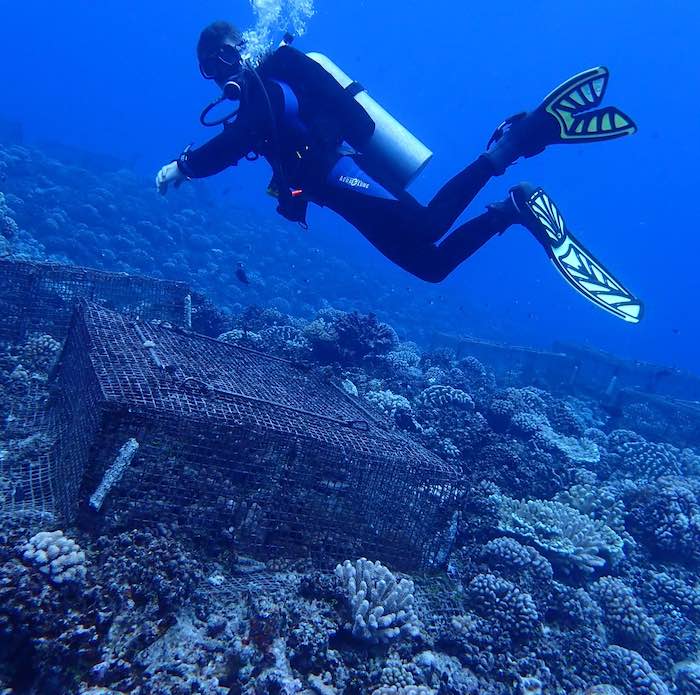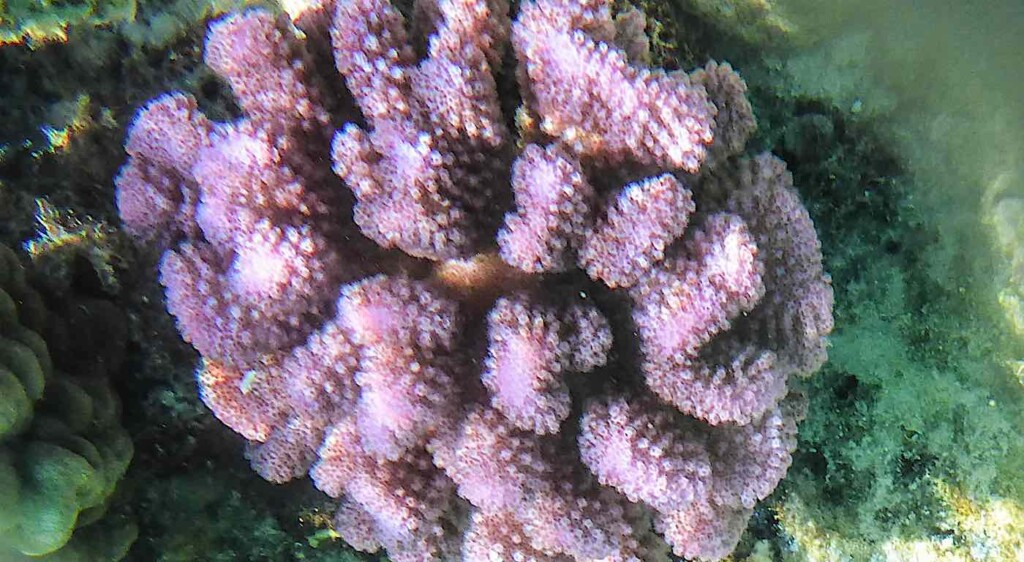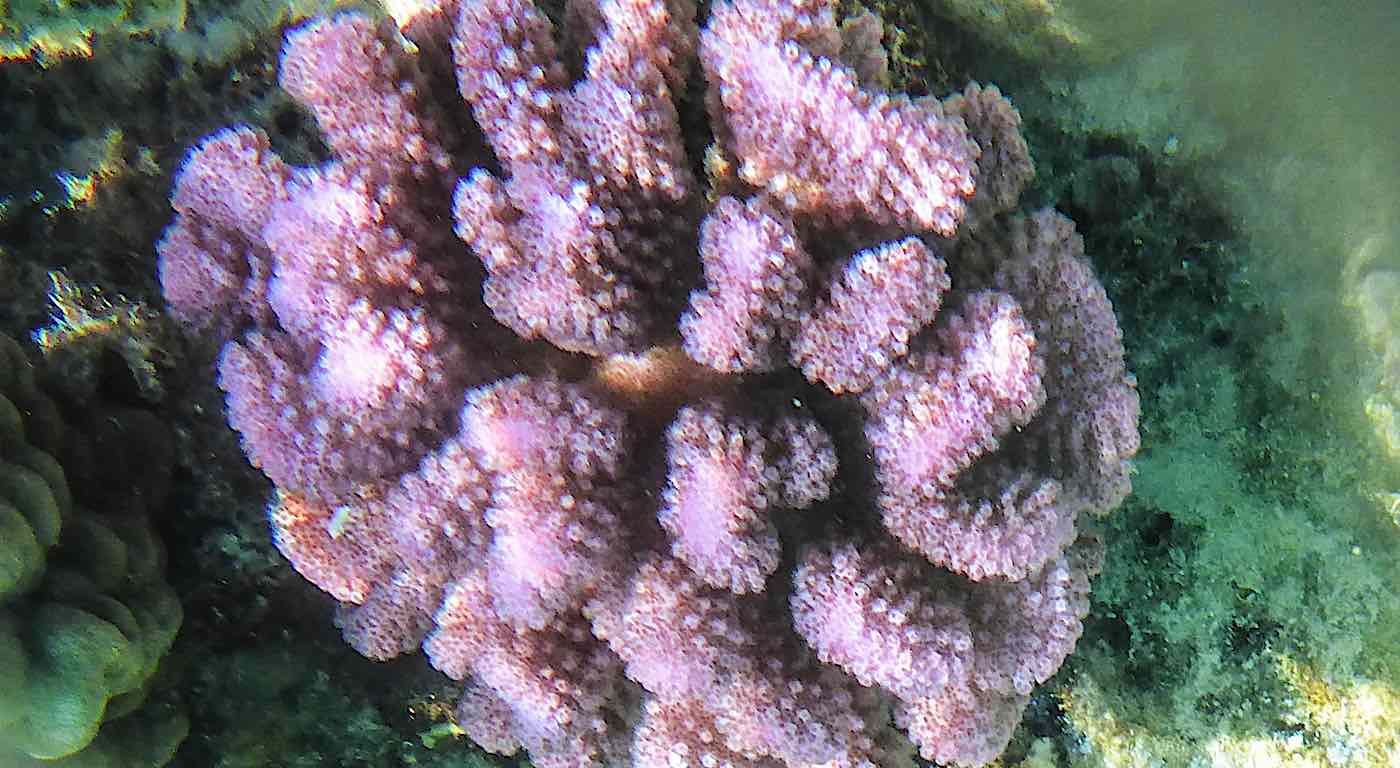
Some coral species can be resilient to marine heat waves by “remembering” how they lived through previous one, reveals new research.
Scientists at Oregon State University also discovered evidence that the ecological memory response is likely linked to the microbial communities that dwell among the corals.
The study, published today in Global Change Biology, is important because coral reefs are found in less than one percent of the ocean but are home to nearly one-quarter of all known marine species. They also help regulate the sea’s carbon dioxide levels and are a crucial source for scientists searching for new medicines.
“Slowing down the rate of coral cover and species loss is a major conservation goal,” said study author and graduate student Alex Vompe. “Predicting and engineering heat tolerance are two important tools.”
“It is vital to understand how quickly reefs can adapt to ever more frequent, repeated disturbances such as marine heatwaves.
Coral microbiomes—the community of bacteria and archaea living within reefs—could be the key to rapid adaptation.
“Climate change is threatening coral reefs in part because some of the relationships between coral and their microbes can be stressed by warming oceans to the point of dissolution,” explained Vompe.
“But Acropora retusa, a prevalent coral species in the Mo’orean coral reef that we studied, appears to have a powerful ecological memory response to heat waves that the microbiome seems to play a role in.
LOOK: Volunteers ‘De-seaweed’ Reef For Dramatic 600% Improvement of Coral Regrowth
“This means some coral species may be more resilient to climate change than previously thought.”
Partly funded by the National Science Foundation, the team spent five years studying 200 coral colonies at a reef on the north shore of Mo’orea, French Polynesia. Because of the reef’s recent history, it presented a unique opportunity to examine heat wave response.
In 2010, crown-of-thorns starfish and a cyclone destroyed more than 99% of the corals, effectively hitting the reset button on the reef.
MORE PROOF OF RESILIENCY: 4 Decades of Data Suggests Pacific Coral Reefs Can Acclimate to Warming Oceans and Resist Future Bleaching
Corals reestablished and went through comparatively minor heat wave events in 2016 and 2017 before experiencing the area’s most severe marine heat wave in recorded history between December 2018 and July 2019. The second-most severe heat wave soon followed in 2020.
“We observed that some species of coral seem to remember exposure to past marine heat waves and maintain a higher level of health in subsequent heat waves,” said OSU Professor Vega Thurber. “And Acropora retusa’s memory response was strongly linked to changes in its microbiome, supporting the idea that the microbial community has a part in this process.”

Cauliflower corals in the genus Pocillopora stayed in good health through the heat events, and their microbiomes also showed an ecological memory response, she noted. They were perturbed by the initial 2019 heat wave but recovered to their predisturbance state despite the second heat wave in 2020.
BRAVO: Pristine Coral Reefs Discovered Are Thousands of Years Old And Teeming With Life
“Members of coral microbial communities have unique biological features that make them more adaptable and responsive to environmental change – short generation cycles, large population sizes and diverse metabolic potential,” Vega Thurber said.
“In two of the three coral species we focused on, we identified initial microbiome resilience, host and microbiome acclimatization, or developed microbiome resistance to repeated heat stress. The latter two patterns are consistent with the concept of ecological memory.”
SHARE the HOPE for Coral Reefs With Ocean-Lovers on Social Media…




















